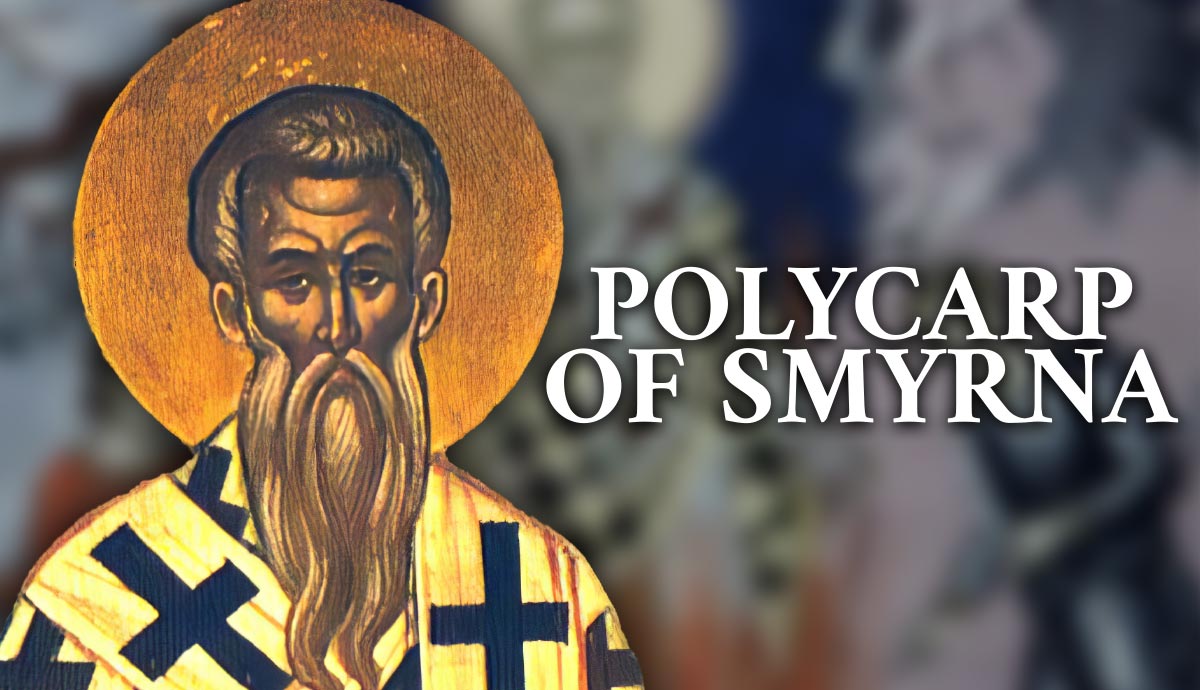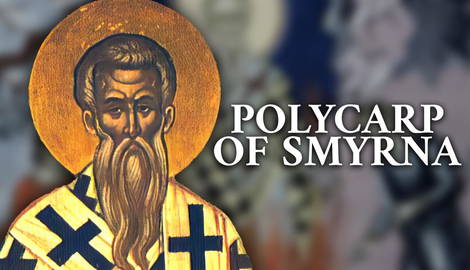
Saint Polycarp of Smyrna was a Christian Bishop who lived from about 69 CE to 155 CE. He is considered an Apostolic Father due to his early writings and influence in the Christian church after the time of Jesus Christ and the apostles. Polycarp may have been a disciple of the Apostle John, who was the author of the Gospel of John, three epistles, and the book of Revelation.
A Guide to the Philippians

One letter of Polycarp’s has been transmitted (passed down from repeated copying) from his time, called the Epistle of Polycarp to the Philippians. This epistle (or letter) gives general instructions to the Philippians as to how to conduct themselves individually and as a community. The letter shows Polycarp’s familiarity with what would become the New Testament, such as quotations from I and II Timothy, Ephesians, Galatians, Romans, 2 Corinthians, and others. Polycarp is among several early Christian leaders which quote extensively from the New Testament, providing some sort of belief as to its “official” status as to the early teachings of Christianity. It has several specific praises and instructions, as outlined below.
Faith During Persecution

He wrote to the Philippians for their faith in the midst of persecution: “because you have followed the example of true love, and have accompanied, as became you, those who were bound in chains, the fitting ornaments of saints.” To encourage them in doing good, he instructed, “keeping ourselves from all unrighteousness, covetousness, love of money, evil speaking, false witness.”
He also offered guidance about Paul’s letter to the Philippians, “he wrote you a letter, which, if you carefully study, you will find to be the means of building you up in that faith which has been given you, and which, being followed by hope, and preceded by love towards God, and Christ, and our neighbor.”
Be Blameless and Compassionate

Polycarp also gave advice for Deacons to “be blameless before the face of His righteousness, as being the servants of God and Christ, and not of men. They must not be slanderers, double-tongued, or lovers of money, but temperate in all things, compassionate, industrious, walking according to the truth of the Lord.”
He instructed presbyters (elders or bishops) to “be compassionate and merciful to all, bringing back those that wander, visiting all the sick, and not neglecting the widow, the orphan, or the poor… abstaining from all wrath, respect of persons, and unjust judgment; keeping far off from all covetousness, not quickly crediting an evil report against any one, not severe in judgment, as knowing that we are all under a debt of sin.”
Warnings

Polycarp also warned the Philippians against various heresies: “For whosoever does not confess that Jesus Christ has come in the flesh, is antichrist; and whosoever does not confess the testimony of the cross, is of the devil; and whosoever perverts the oracles of the Lord to his own lusts, and says that there is neither a resurrection nor a judgment, he is the first-born of Satan.”
How to Follow Examples from Other Leaders

In his letter Polycarp of Smyrna mentioned the examples set by other fellow leaders. In particular, he instructed the Philippians “to exercise all patience, such as you have seen set before your eyes, not only in the case of the blessed Ignatius, and Zosimus, and Rufus, but also in others among yourselves, and in Paul himself, and the rest of the apostles…”
He instructs regarding an apostate Valens, “I am deeply grieved, therefore, brethren, for him (Valens) and his wife; to whom may the Lord grant true repentance! And be then moderate in regard to this matter, and “do not count such as enemies but call them back as suffering and straying members, that you may save your whole body. For by so acting you shall edify yourselves.”
Saint Polycarp Was a Christian Martyr

Polycarp was martyred (killed for his faith) for refusing to burn incense to the Roman emperor. The Martyrdom of Polycarp from the 2nd-3rd century records that among his final words were, “Eighty and six years have I served Him, and He never did me any injury: how then can I blaspheme my King and my Savior?” According to reports, Polycarp is recorded as going bravely to the flames, and an example for all Christians who would be martyred.
While we do not have any of Polycarp’s original writings, through various other early church writers and compilers (such as Eusebius), we have recorded for us the beliefs and practices of some believers within the early church. Polycarp provides valuable insight into how the Christian church grew and lived in the century following the time of the Apostles and Jesus Christ.










